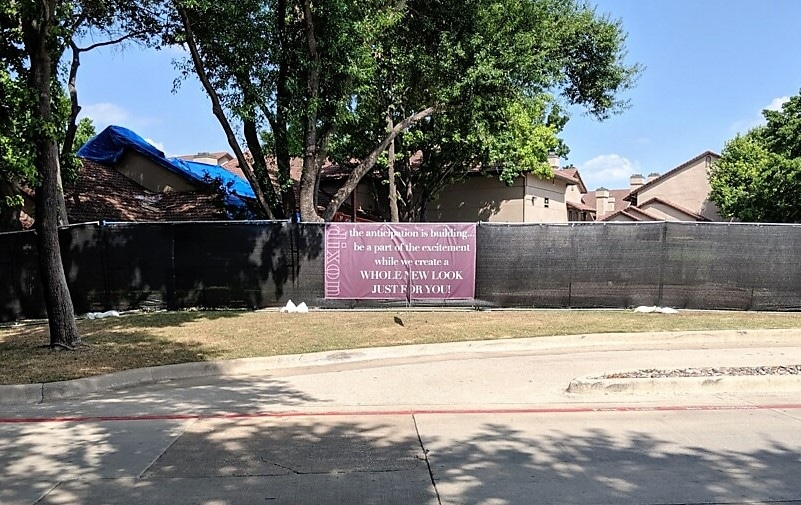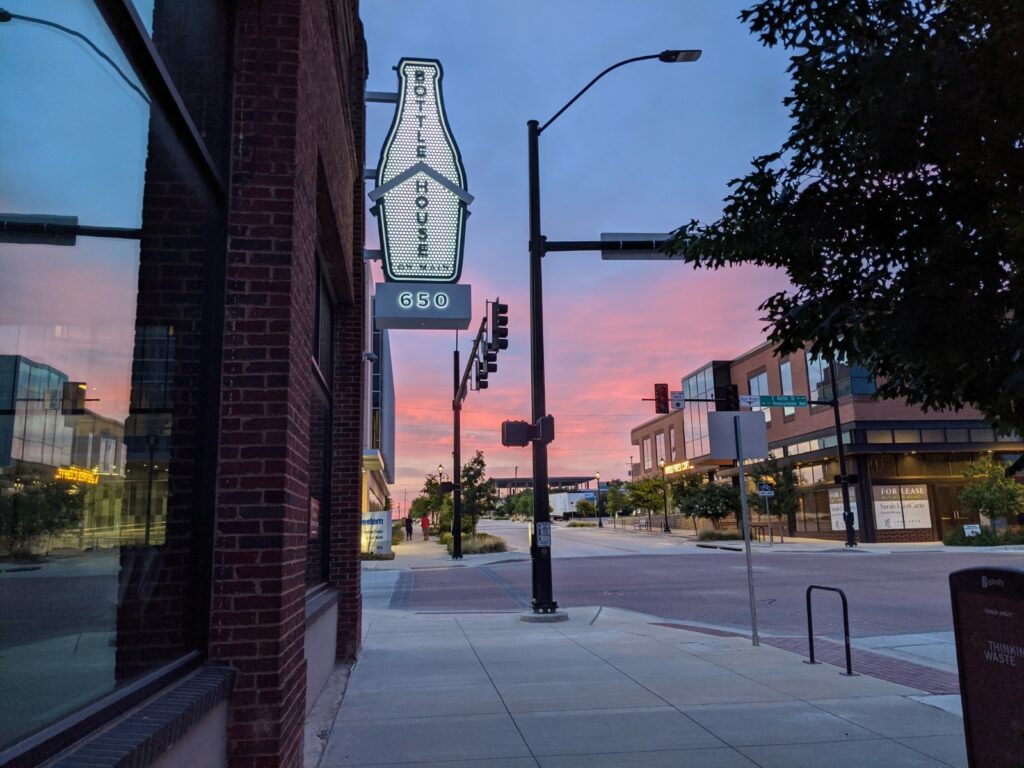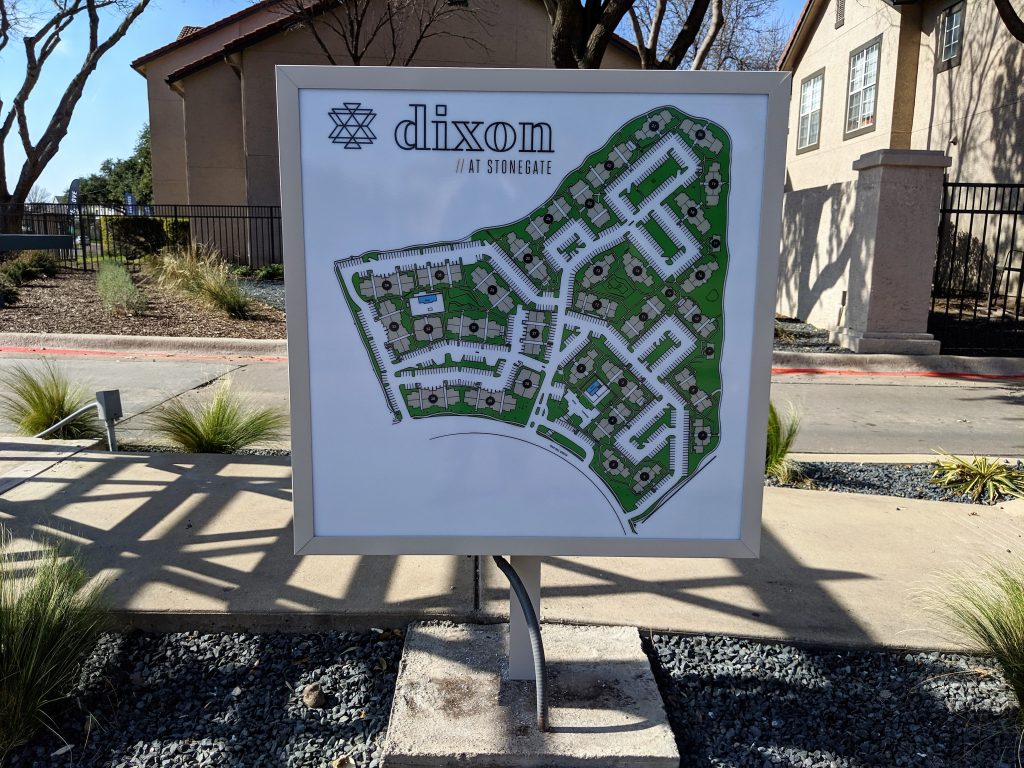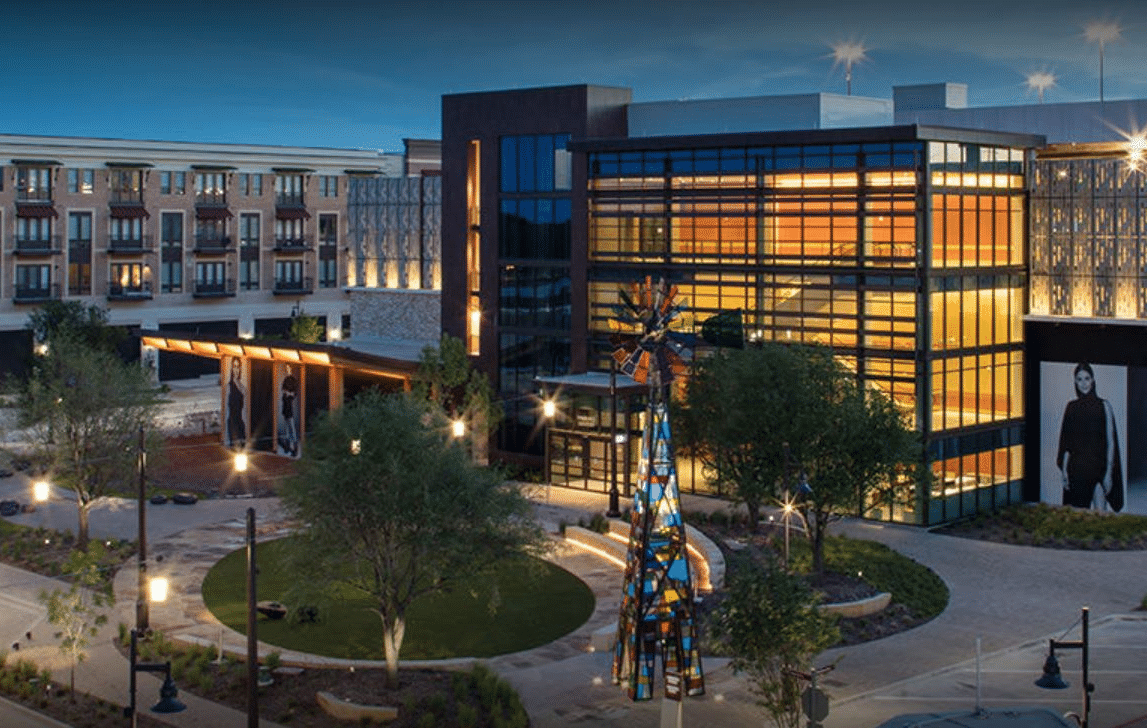One of the hottest trends in Fort Worth real estate is the mixed-use development or urban village, a high-density combination of apartments, offices and storefronts which attract new residents to a stylish, walkable and transit-friendly neighborhood where they can live, work, shop, dine out and have fun.
Because they blend the characteristics of multi-family housing, retail and commercial spaces, mixed-use developments present unique challenges for graphic communication, in style, purpose and timing. Let’s take a look at five of these challenges.
Challenge
#1: Managing Neighborhood Expectations
Some residents welcome the influx of new energy, new customers and tax revenue for the district. Others may fear losing the traditional character of the neighborhood, so the first objective for a mixed-use development is to demonstrate the positive news and benefits of the plan.
Identity and brand can be promoted right from the start with construction site signage. Artist renderings allow residents to see themselves in a new, transformed landscape, and temporary signs can begin to communicate branding elements, such as logos, colors and village themes.
Challenge
#2: Selling the Spaces
As the buildings go up, temporary signage is needed to attract residents to the apartments or condos, and to direct commercial tenants to leasing agents for offices and storefronts.
At the early stages of construction, effective signage is the only way to communicate curb appeal and to capture the attention of prospective tenants. Banners along construction fencing and temporary billboards are an ideal way to build awareness and interest even before the property is available.

Challenge
#3: High Density Requires High Visibility
In a dense urban district, lines of sight are often crowded out by other signs and buildings. If passing traffic takes the complex for just an apartment or office building, the restaurant and retail tenants won’t attract enough business.
Mixed-use developments must have signs which use elevation, size, color, and lighting to break through the visual clutter and attract the attention of non-resident customers. Monument signs can display separate identities for all of the businesses sharing the village.

Challenge
#4: More Complex Wayfinding
Density adds complexity, so mixed-use developments need superior vehicle and pedestrian wayfinding signs to give visitors a pleasant, frictionless experience in finding their way to the parking garage, restaurant or retail store.
An individual wayfinding sign can be as simple as a directional arrow, or as complex as a site map and business directory. In either case, logos, colors and other branding elements should be applied to reinforce that this is one village. Planning for the content, placement and look of wayfinding signs should begin at the earliest stages of village design and drawing.

Challenge
#5: Integrated Parking and Transit
One of the principal attractions of the urban village lifestyle is transit-friendly living. With a new building in an older, central neighborhood, residents can enjoy life in the city with well-designed parking and easy access to transit options.
With the mix of residents, office visitors and retail customers, urban village parking must accommodate divergent vehicle rights and visitor expectations. For those who don’t drive, mixed-use developments must guide customers to a convenient cab/Uber stand, bus shelter or train station.
Whether your Fort Worth mixed-use development is well-established or still on the drawing board, bring your graphic communication objectives to Cowtown Graphics & Signs. For free estimates, visit us online at www.cowtownsigns.com , or to talk with one of our expert advisors, call 817-446-6000.

